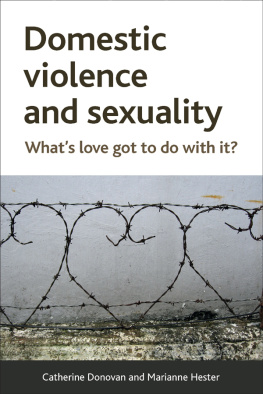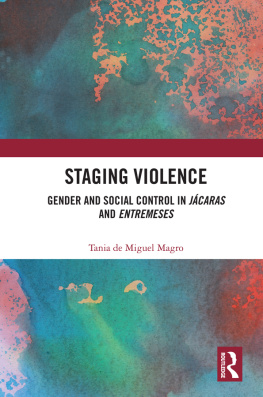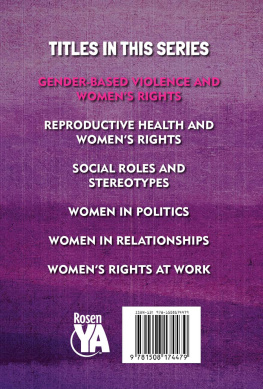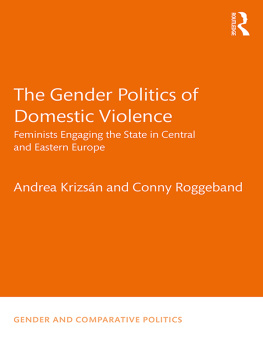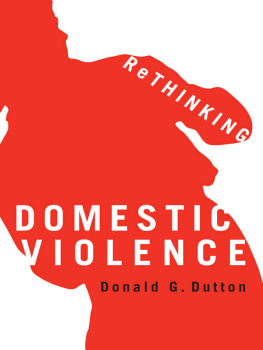Domestic Violence in Asia
This book explores the changing patterns of domestic violence in Asia. Based on extensive original research in the Maldives, it argues that forces of globalization, consumerism, Islamism and democratization are changing the nature of domestic relations, with shifting ideas surrounding gender and Islam being particularly significant. The book points out that domestic violence has been relatively low in the Maldives in comparison with other Asian countries, as a result of, the book argues, a history of relatively equal gender relations, an ideology of masculinity that is associated with calmness and rationality where violence is not considered an acceptable means of dealing with problems, and flexible marriage and divorce practices. The book shows how these factors are being undermined by new ideas which emphasise the need for wifely obedience, increasing gender inequality and the right of husbands to be coercive.
Emma Fulu completed her doctorate at the University of Melbourne, Australia.
Asian Studies Association of Australia Women in Asia Series
Editor: Lenore Lyons (The University of Sydney) Editorial Board:
Susan Blackburn (Monash University)
Hyaeweol Choi (The Australian National University)
Michele Ford (The University of Sydney)
Louise Edwards (University of Hong Kong)
Trude Jacobsen (Northern Illinois University)
Vera Mackie (University of Wollongong)
Anne McLaren (The University of Melbourne)
Mina Roces (University of New South Wales)
Dina Siddiqi (The City University of New York)
Andrea Whittaker (The University of Queensland)
Mukkuvar Women
Gender, Hegemony and Capitalist
Transformation in a South Indian
Fishing Community
Kapana Ram 1991
A World of Difference
Islam and Gender Hierarchy in
Turkey
Julie Marcus 1992
Purity and Communal Boundaries
Women and Social Change in a
Bangladeshi Village
Santi Rozario 1992
Madonnas and Martyrs
Militarism and Violence in the
Philippines
Anne-Marie Hilsdon 1995
Masters and Managers
A Study of Gender Relations in
Urban Java
Norma Sullivan 1995
Matriliny and Modernity
Sexual Politics and Social
Change in Rural
Malaysia
Maua Stivens 1995
Intimate Knowledge
Women and their Health in
North-East Thailand
Andrea Whittaker 2000
Women in Asia
Tradition, Modernity and
Globalisation
Louise Edwards and
Mina Roces (eds) 2000
Violence Against Women in Asian Societies
Gender Inequality and
Technologies of Violence
Lenore Manderson and
Linda Rae Bennett (eds) 2003
Womens Employment in Japan
The Experience of Part-time
Workers
Kaye Broadbent 2003
Chinese Women Living and Working
Anne McLaren (ed.) 2004
Abortion, Sin and the State in Thailand
Andrea Whittaker 2004
Sexual Violence and the Law in Japan
Catherine Burns 2004
Women, Islam and Modernity
Single Women, Sexuality
and Reproductive Health in
Contemporary Indonesia
Linda Rae Bennett 2005
The Womens Movement in Post-Colonial Indonesia
Elizabeth Martyn 2005
Women and Work in Indonesia
Michele Ford and Lyn Parker (eds)
2008
Women and Union Activism in Asia
Kaye Broadbent and Michele Ford
(eds) 2008
Gender, Islam, and Democracy in Indonesia
Kathryn Robinson 2008
Sex, Love and Feminism in the Asia Pacific
A Cross-Cultural Study of Young
Peoples Attitudes
Chilla Bulbeck 2008
Gender, State and Social Power
Divorce in Contemporary
Indonesia
Kate OShaughnessy 2008
Gender, Household, and State in Post-Revolutionary Vietnam
Jayne Werner 2008
Young Women in Japan
Transitions to Adulthood
Kaori Okano 2009
Women, Islam and Everyday Life
Renegotiating Polygamy in
Indonesia
Nina Nurmila 2009
Feminist Movements in Contemporary Japan
Laura Dales 2009
Gender and Labour in Korea and Japan
Sexing Class
Ruth Barraclough and Elyssa
Faison (eds) 2009
Gender Diversity in Indonesia
Sexuality, Islam and Queer Selves
Sharyn Graham Davies 2010
New Women in Colonial Korea
A Sourcebook
Hyaeweol Choi 2012
Women Writers in Postsocialist China
Kay Schaffer and Xianlin Song
2013
Domestic Violence in Asia
Globalization, Gender and Islam
in the Maldives Emma Fulu 2014
First published 2014
by Routledge
2 Park Square, Milton Park, Abingdon, Oxon OX14 4RN
Simultaneously published in the USA and Canada
by Routledge
711 Third Avenue, New York, NY 10017
Routledge is an imprint of the Taylor & Francis Group, an informa business
2014 Emma Fulu
The right of Emma Fulu to be identified as author of this work has been asserted by her in accordance with the Copyright, Designs and Patent Act 1988.
All rights reserved. No part of this book may be reprinted or reproduced or utilised in any form or by any electronic, mechanical, or other means, now known or hereafter invented, including photocopying and recording, or in any information storage or retrieval system, without permission in writing from the publishers.
Trademark notice:Product or corporate names may be trademarks or registered trademarks, and are used only for identification and explanation without intent to infringe.
British Library Cataloguing in Publication Data
A catalogue record for this book is available from the British Library
Library of Congress Cataloguing in Publication data
Fulu, Emma, author.
Domestic violence in Asia : globalization, gender and Islam in the Maldives /Emma Fulu.
pages cm. (Asian Studies Association of Australia women in Asia series)
Includes bibliographical references and index.
Summary: Explores changing patterns of domestic violence in Asia. Based on extensive original research in the Maldives, it argues that forces of globalisation, consumerism, Islamism and democratisation are changing the nature of domestic relations, with shifting ideas surrounding gender and Islam being particularly significant Provided by publisher.
1. Family violence Maldives. 2. Intimate partner violence Maldives. 3. Family violence Religious aspects Islam. 4. Globalization Social aspects Maldives. 5. Women in Islam Maldives. I. Title.
HV6626.23.M42F85 2013
362.8292095495dc23
2013005939
ISBN: 978-0-415-67397-6 (hbk)
ISBN: 978-0-203-71529-1 (ebk)


